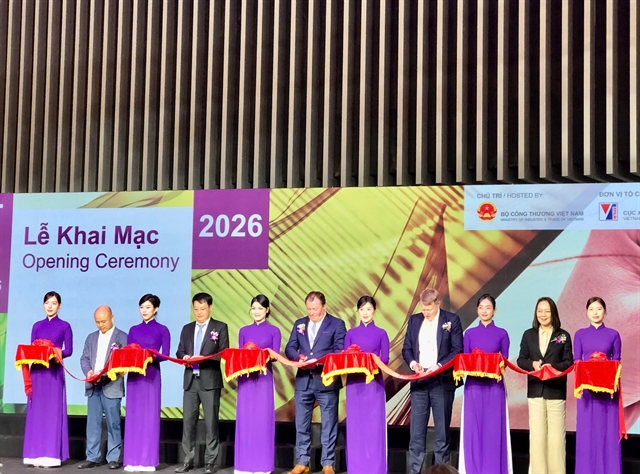 Life & Style
Life & Style

Dr Olga Sambolska*
October is Breast Cancer Awareness Month, a time to remind all women of the importance of regular health checks and early detection. Breast cancer screening in Hà Nội plays a crucial role in identifying the disease at an early stage.
Breast cancer remains the most common cancer among women worldwide and continues to rise in incidence. Early detection efforts, such as breast cancer screening in Hà Nội, have significantly improved outcomes, helping women live longer and healthier lives.
Breast cancer screening in Hà Nội is part of a growing effort to make preventive care more accessible to women. Breast cancer is the most commonly diagnosed cancer among women and continues to rise in incidence globally. Early detection initiatives have significantly improved, with both screening rates and localised-stage diagnoses increasing. Survival outcomes are excellent and have steadily improved over recent decades.
National, local screening programmes
Many countries, including Việt Nam, now encourage regular breast cancer screening for women aged 40 and above. Screening can include mammography, ultrasound and clinical breast examinations.
Mammography is a key tool for the early detection of breast cancer, and it is available at Family Medical Practice Hà Nội.

|
| Patient discussing breast cancer screening options with Dr. Olga Sambolska at FMP Hà Nội. Photo courtesy of Family Medical Practice |
Improved detection & stage shift
Thanks to active breast cancer screening in Hà Nội, the proportion of breast cancers diagnosed at an early stage continues to rise. More women are now eligible for breast-conserving surgery (BCS) rather than mastectomy. This shift in treatment reflects how early diagnosis can dramatically improve both quality of life and survival.
Public awareness campaigns
The Government and NGOs have run nationwide awareness campaigns since the early 2000s, focusing on:
The importance of mammograms
Education on self-exams and early symptoms
The global “Pink Ribbon” campaign, which is widely adopted during Breast Cancer Awareness Month
These public initiatives and local medical providers offering breast cancer screening in Hà Nội continue to remind women that prevention and early detection are key.
Advances in treatment and care access
Universal health coverage via the National Health Insurance ensures nearly all patients have access to modern breast cancer care, including:
Surgery (BCS and reconstructive options)
Radiation therapy
Modern systemic therapies (targeted, hormonal, immunotherapies)
Multidisciplinary cancer centres have been established nationwide, increasing access to specialised care.
Outcome improvements
Five-year relative survival rates have improved dramatically:
From 79.3 per cent (1993–1995) → 93.6 per cent (2015–2019) → 94.3 per cent (2018–2022).
Mortality from breast cancer has remained relatively low compared to incidence, reflecting the effectiveness of screening and treatment.
Risk factors
Reproductive and hormonal factors
Later childbearing and fewer births
Shorter breastfeeding duration
Early menarche and late menopause leading to longer lifetime oestrogen exposure
Lifestyle and environmental factors
Westernisation of diet (shift from traditional to higher-fat, high-protein and processed foods)
Alcohol consumption (increasing among women; even modest drinking increases risk)
Obesity and physical inactivity (especially postmenopausal obesity)
Smoking (relatively low among Vietnamese women but rising in some groups)
Genetic and biological factors
BRCA mutations: lower prevalence (about 2–3 per cent of patients), but family history remains a strong risk factor
Subtype distribution: the most common is hormone receptor (HR)-positive, HER2-negative (about 63 per cent)
Early symptoms of breast cancer
Common symptoms
Breast lump or thickening
Changes in breast size or shape
Skin changes (dimpling, puckering, redness, orange-peel texture)
Nipple changes (inversion, discharge, rash, crusting)
Localised pain or tenderness
Swelling in the armpit (lymph nodes)
Less common but important
Itching, burning or non-healing sores
Unexplained change in breast symmetry
A thickened area different from the rest of the breast tissue

|
| Mammography is a key tool for early detection of breast cancer, available at FMP Hà Nội. Photo courtesy of Family Medical Practice |
Why early symptoms matter
Early detection allows doctors to diagnose breast cancer before symptoms become severe. Regular self-exams and mammography help identify potential problems at a stage when treatment is most effective.
Women are encouraged to schedule their screenings during Breast Cancer Awareness Month as part of their annual health routine.
Take action this Breast Cancer Awareness Month
The success in breast cancer outcomes worldwide is driven by:
Early, accessible screening
Public health education
Broad insurance coverage
Modern treatment infrastructure
These combined efforts have led to higher survival rates and a better quality of life for women. During this Breast Cancer Awareness Month, take the opportunity to schedule your breast cancer screening in Hà Nội, remind loved ones and support awareness efforts in your community. Family Medical Practice

|
| Dr. Olga Sambolska. Photo courtesy of Family Medical Practice |
* Dr Olga Sambolska graduated from Lviv National Medical University in 1996 and began her medical career at the Volyn Regional Maternity Hospital in Ukraine. Since 1998, she has been a registered obstetrics and gynaecology doctor, providing healthcare to women in relation to pregnancy, birth control, menopausal issues, contraception, menstrual cycle disorders and sexually transmitted diseases. She is fluent in English, Ukrainian, Polish, and Russian.
FMP Healthcare Group operates medical centres in major cities including HCM City, Hà Nội and Đà Nẵng, offering consultations with international doctors, check-up centres and emergency ambulance services.
Visit FMP Hà Nội 24/7 at 298I Kim Mã Street, Ngọc Hà Ward, Hà Nội.




